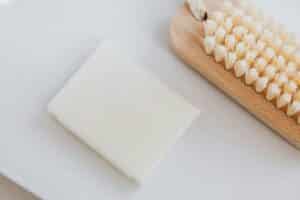Maintaining a clean driveway is essential for any property owner in Australia. However, traditional driveway cleaning methods often involve harsh chemicals that can harm the environment. Switching to an environmentally conscious cleaning solution can significantly reduce the ecological footprint.
Using an eco-friendly driveway cleaner not only benefits the environment but also ensures a safer cleaning process for you and your family. This guide will walk you through the importance of making the switch and provide a comprehensive overview of the best alternatives available.
Key Takeaways
- Understand the environmental impact of traditional driveway cleaning methods.
- Learn the benefits of switching to an eco-friendly cleaning solution.
- Discover the key factors to consider when choosing a driveway cleaner.
- Explore the best eco-friendly alternatives for driveway cleaning.
- Implement environmentally conscious practices for a sustainable future.
Why Traditional Driveway Cleaners Are Harmful to the Environment
Traditional driveway cleaners, while effective, pose significant environmental risks due to their chemical composition. These risks are multifaceted, affecting not just the immediate environment but also broader ecosystems.
Chemicals in Standard Driveway Cleaners
Most conventional driveway cleaners contain harsh chemicals, including toxic substances that can be harmful to both humans and wildlife. Some common chemicals found in these cleaners include:
- Chlorine-based bleaches
- Petroleum-based solvents
- Phthalates and other endocrine disruptors
Environmental Impact of Chemical Runoff
Chemical runoff from driveway cleaners can contaminate local waterways, harming aquatic life and potentially entering the human water supply. This contaminant can have long-lasting effects on the environment.
Effects on Australian Flora and Fauna
In Australia, the impact of these chemicals can be particularly detrimental due to the country’s unique and diverse wildlife. The use of harsh chemicals in driveway cleaners can lead to the destruction of habitats and the loss of native species.
 Understanding Different Types of Eco-Friendly Driveway Cleaners
Understanding Different Types of Eco-Friendly Driveway Cleaners
Eco-friendly driveway cleaners come in various forms, each with unique benefits and applications. These cleaners not only help in maintaining the cleanliness of your driveway but also play a crucial role in reducing environmental pollution.
Biodegradable Cleaners
Biodegradable cleaners are made from ingredients that can easily decompose and are less harmful to the environment. They are effective in cleaning driveways without leaving toxic residues.
Plant-Based Degreasers
Plant-based degreasers utilise natural ingredients derived from plants to break down grease and grime. They are a popular choice for those looking for a non-toxic and environmentally friendly cleaning solution.
- Effective in removing grease and oil-based stains
- Non-toxic and safe for use around pets and children
- Biodegradable, reducing environmental impact
Oxygen-Based Cleaners
Oxygen-based cleaners work by releasing oxygen ions that help break down and lift away dirt and stains. They are particularly effective on concrete driveways and are considered safe for the environment.
Enzyme-Based Solutions
Enzyme-based solutions use natural enzymes to break down organic matter, making them ideal for cleaning driveways stained with organic materials. They are environmentally friendly and safe for various driveway surfaces.
When choosing an eco-friendly driveway cleaner, it’s essential to consider the type of driveway you have and the nature of the stains you’re dealing with. By selecting the right cleaner, you can maintain your driveway’s appearance while minimising your environmental footprint.
Choosing the Best Eco-Friendly Driveway Cleaner for Your Surface Type
Understanding your driveway’s surface material is the first step in choosing the most suitable eco-friendly cleaner. Different surfaces have unique characteristics that require tailored cleaning approaches to maintain their integrity and appearance.
Concrete Driveways
Concrete driveways are popular due to their durability. However, they can be prone to staining. When choosing an eco-friendly cleaner for concrete, it’s essential to consider whether the concrete is porous or sealed.
Porous vs. Sealed Concrete Considerations
Porous concrete requires cleaners that can penetrate deeply to remove ingrained dirt, while sealed concrete needs cleaners that won’t damage the sealant. Biodegradable cleaners are often suitable for both types.
Asphalt Driveways
Asphalt driveways are another common type. They require cleaners that can effectively remove oil stains and grime without damaging the asphalt. Plant-based degreasers are often effective for asphalt surfaces.
Paver and Brick Driveways
Paver and brick driveways add aesthetic value to properties. Cleaning these surfaces requires care to avoid dislodging the sand between pavers or damaging the bricks. Gentle, eco-friendly cleaners that are safe for the material should be used.
Natural Stone Surfaces
Natural stone surfaces, such as granite, limestone, or sandstone, require specific care. Acidic cleaners can etch the stone, so pH-neutral, eco-friendly cleaners are recommended to maintain the stone’s integrity.
 Effective Application Methods for Eco-Friendly Driveway Cleaners
Effective Application Methods for Eco-Friendly Driveway Cleaners
To get the best results from eco-friendly driveway cleaners, it’s essential to understand the proper application techniques. Different surfaces and types of dirt or stains may require specific methods to achieve a clean driveway without damaging the surface or harming the environment.
Manual Scrubbing Techniques
Manual scrubbing is a gentle and effective method for cleaning driveways, especially for smaller areas or delicate surfaces. Use a soft-bristled brush or a scrubber with eco-friendly cleaning solution to remove dirt and grime. This method allows for precise control and is less likely to damage the surface.
Pressure Washing with Eco-Friendly Solutions
Pressure washing is a popular method for cleaning driveways due to its efficiency. When using eco-friendly cleaners with a pressure washer, it’s crucial to adjust the pressure setting according to the surface type.
Pressure Settings for Different Surfaces
- Concrete: 2500-3000 PSI
- Asphalt: 2000-2500 PSI
- Pavers and Brick: 1500-2000 PSI
- Natural Stone: 1000-1500 PSI
Dwell Time and Reapplication Guidelines
The dwell time, or the amount of time the cleaner is left on the surface before rinsing, can significantly impact the effectiveness of the cleaning. Generally, eco-friendly cleaners require a dwell time of 5 to 15 minutes. Reapplication may be necessary for tougher stains.
Protecting Surrounding Plants and Gardens
When cleaning your driveway with eco-friendly solutions, it’s still important to protect surrounding plants and gardens. Wetting plants before cleaning and covering them if necessary can prevent damage. Additionally, choosing cleaners that are specifically designed to be safe for vegetation can help minimise risks.
By following these application methods and guidelines, homeowners can effectively clean their driveways while maintaining an eco-friendly approach.
DIY Eco-Friendly Driveway Cleaning Solutions
For those inclined towards a more hands-on approach, DIY eco-friendly driveway cleaning solutions offer a cost-effective and environmentally friendly alternative. By utilising common household items, homeowners can create effective cleaning solutions that are gentle on the environment.
Vinegar and Baking Soda Mixture
A popular DIY solution involves mixing vinegar and baking soda. This combination is effective for removing grime and stains from driveways. The acid in the vinegar helps break down tough stains, while the baking soda acts as a mild abrasive.
Citrus-Based Homemade Cleaners
Citrus fruits like lemons and oranges can be used to create a natural cleaning solution. The citric acid in these fruits helps dissolve dirt and grime, leaving the driveway clean without harsh chemicals.
Hydrogen Peroxide Solutions
Hydrogen peroxide is another effective ingredient for DIY driveway cleaning. It acts as a strong oxidiser, breaking down and removing tough stains and grime.
When to Choose Commercial vs. DIY Options
While DIY solutions are eco-friendly and cost-effective, there are instances where commercial products might be more suitable. For heavily stained driveways or large areas, commercial products might offer a more efficient solution. However, for regular maintenance and minor stains, DIY solutions are a great option.
Conclusion
Maintaining a clean driveway is crucial for enhancing your property’s curb appeal. By adopting eco-friendly practices, you not only keep your driveway clean but also contribute to a healthier environment. The use of eco-friendly driveway cleaners is a significant step towards achieving this goal.
Eco-friendly driveway cleaners are designed to be biodegradable and non-toxic, reducing the environmental impact associated with traditional cleaning products. By choosing the right eco-friendly cleaner for your surface type, you can effectively remove dirt and grime without harming local flora and fauna.
Regular cleaning and maintenance of your driveway using eco-friendly practices will ensure a clean and sustainable property.
Get a free quote for sustainable driveway cleaning!
FAQ
What is the main difference between eco-friendly driveway cleaners and traditional cleaners?
Eco-friendly driveway cleaners use water-based, non-corrosive ingredients that are safer for plants and local wildlife, unlike traditional cleaning methods, which often rely on ammonia, harsh cleaning agents, and solvents. These newer solutions are just as effective on concrete surfaces, masonry, and sidewalks, without harming the environment.
Are eco-friendly driveway cleaners effective in removing tough stains?
Yes, many eco-friendly cleaners contain powerful surfactants and degreaser compounds designed to break down oil and grime effectively. They are considered heavy duty yet effective and safe, making them ideal as a stain remover for various concrete surfaces.
Can I use eco-friendly driveway cleaners on different types of driveway surfaces?
Absolutely. Whether you’re working with concrete cleaner, cladding, masonry, or even wood and composite cladding, eco-friendly cleaners are versatile. Just make sure you select the best cleaning product for your specific material—some are tailored for composite boards, others for real timber or pavers.
How do I protect surrounding plants and gardens when using eco-friendly driveway cleaners?
To protect your landscape, use eco-friendly cleaning solutions that are non-corrosive and water based. While spraying, create a barrier or cover nearby greenery. This approach to cleaning ensures safety for both your driveway and your garden.
Can I make my own eco-friendly driveway cleaner at home?
Yes, you can make your own eco-friendly driveway cleaner using common household items like vinegar, baking soda, and citrus, but be sure to test the solution on a small area first.
Are eco-friendly driveway cleaners more expensive than traditional cleaners?
Not necessarily, while some eco-friendly driveway cleaners may be more expensive, many are competitively priced, and making your own DIY solutions can be cost-effective.
How often should I clean my driveway using eco-friendly methods?
Driveways need cleaning regularly—how often depends on foot traffic, weather, and usage. Regular power washing with an eco-friendly concrete cleaner helps prevent buildup and extends the life of your sealer, reducing future cleaning needs.




